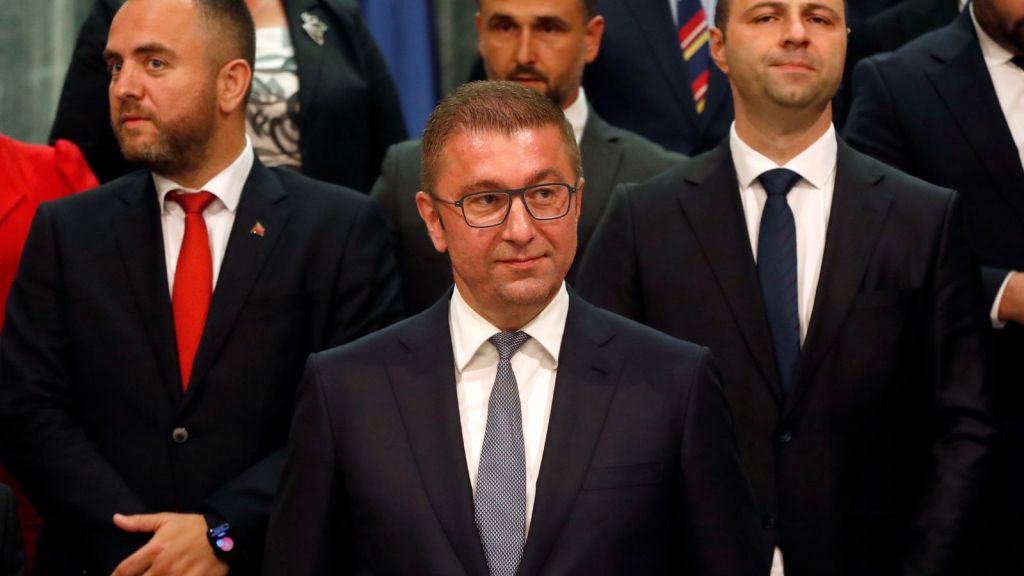ATHENS, Greece — Greece on Monday accused neighboring North Macedonia’s new center-right government of breaking a historic deal on the country’s name, warning that this could harm its hopes of one day joining the European Union.
Athens was responding a day after North Macedonia’s Prime Minister Hristijan Mickoski repeatedly used the old name, Macedonia, saying he found his country’s new name, under the agreement, “shameful.”
The 2018 deal with Greece, which claims Macedonia as the name of one of its regions, was signed by the center-left government that Mickoski defeated in May 8 elections. It ended a decades-long quarrel over history and cultural heritage, and stipulated that the country would formally adopt the new name North Macedonia. The agreement allowed North Macedonia to later join NATO.
Speaking in parliament Sunday ahead of a vote to approve his new government, Mickoski repeatedly used the old name, Macedonia. But shortly later in his official oath of office he used the full formal name of the country.
″(I) will have to capitulate before you and say that shameful adjective, because it is, unfortunately, part of the law and the constitution that I have to respect as the head of government,” Mickoski told lawmakers.
As an EU member, Greece can hinder its neighbor’s accession — which another Balkan neighbor and bloc member, Bulgaria, is already doing over a separate dispute with North Macedonia concerning minority issues.
On Monday, Greek Foreign Minister George Gerapetritis said North Macedonia’s EU accession would be “unimaginable and unacceptable” without its “full and unconditional” respect of international law, including the name agreement with Greece.
Gerapetritis said North Macedonia’s new leadership “has decided, systematically and insistently, not to use (the name North Macedonia) domestically in public discourse. This is a clear breach of the (agreement with Greece) that calls for the use of the name North Macedonia both domestically and internationally,” he said.
North Macedonia’s new president, also elected in May and backed by Mickoski’s VMRO-DPMNE party, riled Greek and EU officials last month by calling her country Macedonia in her oath of office.
President Gordana Siljanovska-Davkova later insisted that she had a “human right” to refer to the country as she liked.




